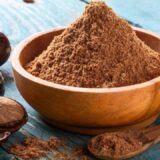What Is Ama According To Ayurveda? What Causes It?
In Ayurveda, the concept of Agni (digestive fire) and its role in maintaining balance and well-being is of paramount importance. Agni is considered the transformative energy responsible for the digestion, absorption, and assimilation of food, thoughts, and experiences. 
Agni (digestive fire) plays a crucial role in converting food into nutrients and life force (Prana), which nourish all bodily tissues and support overall health. A balanced and robust Agni is essential for the proper functioning of the doshas (Vata, Pitta, and Kapha).
When Agni is strong, it helps digest and eliminate waste efficiently, preventing the accumulation of Ama (toxins) and imbalances in the doshas.
On the other hand, a weak Agni leads to incomplete digestion and the formation of Ama, which can disturb the doshic balance and contribute to various health issues.
How to Increase Agni Tatva in Body?
To maintain a healthy Agni and prevent doshic imbalances, Ayurveda recommends the following practices:
1. Eating Mindfully: Pay attention to the quality and quantity of food you consume. Chew your food well to aid digestion, and avoid overeating or eating when not hungry.
2. Choosing Suitable Foods: Eat foods that are compatible with your individual dosha constitution (Prakriti) and consider seasonal and environmental factors.
3. Avoiding Improper Food Combinations: Combine foods wisely to support easy digestion. Avoid incompatible food combinations, such as mixing fruits with dairy products or consuming conflicting tastes together.
4. Favoring Warm Foods and Beverages: Warm foods and drinks are gentler on the digestive system and help maintain Agni’s strength.
5. Staying Hydrated: Drink water at room temperature or warm water throughout the day to support digestion and prevent the weakening of Agni.
6. Regular Physical Activity: Engage in regular exercise appropriate for your body type to stimulate Agni and support overall metabolism.
7. Managing Stress: Stress negatively affects Agni. Practice relaxation techniques such as yoga, meditation, and deep breathing to reduce stress levels.
8. Establishing Regular Meal Times: Eat your meals at consistent times each day to help regulate the digestive process.
9. Avoiding Overconsumption of Cold and Raw Foods: Too many cold and raw foods can dampen Agni, making digestion less efficient.
10. Detoxification: Under the guidance of an Ayurvedic practitioner, consider periodic cleansing practices (Panchakarma) to remove accumulated Ama and rejuvenate the body.
What Is Ama In Ayurvedic Medicine?
Ama refers to the toxic, undigested, or improperly metabolized substances that accumulate in the body due to poor digestion or imbalances in the doshas (Vata, Pitta, and Kapha). It is considered the root cause of many health issues in Ayurveda.
Here are some of the key points:
1. Formation of Ama: When the digestive fire (Agni) is weak or imbalanced, the food we consume is not properly digested and assimilated. Undigested particles combine with metabolic waste products, creating toxic substances known as Ama.
2. Circulation of Ama: Ama circulates throughout the body and tends to accumulate in the weakest areas or tissues. Over time, this accumulation weakens organs, impairs bodily functions, and reduces the efficiency of the immune system.
3. Effects of Ama: Ama can block the intestines, leading to improper assimilation and absorption of food. It can also clog capillaries, veins, and arteries, affecting blood circulation. As a result, the blood absorbs toxins, contributing to various health issues.
4. Manifestation of Ailments: Ama accumulation in specific areas weakens organs and tissues, leading to various health ailments. Conditions such as diabetes, arthritis, and other diseases can be attributed, at least in part, to the presence of Ama in the body.
5. Causes of Ama: Ama can have different causes, but most of them are related to poor digestion. This can result from improper dietary habits, emotional factors like repressing emotions or not processing them effectively, and environmental influences.
To prevent the formation and accumulation of Ama, Ayurveda emphasizes the importance of maintaining a healthy Agni (digestive fire) and following appropriate dietary and lifestyle practices.
Regular detoxification through Ayurvedic cleansing therapies, known as “Panchakarma,” can also help eliminate existing Ama from the body.
Addressing Ama and supporting proper digestion are essential aspects of Ayurvedic health practices. By doing so, individuals can promote overall well-being, balance the doshas, and reduce the risk of various health ailments.
As always, consulting with an experienced Ayurvedic practitioner can provide personalized guidance for addressing specific health concerns and maintaining optimal health.
What Makes the Digestive System Weak?
Indeed, in Ayurvedic medicine, the strength of our digestive fire, or “Agni” is considered crucial for overall health and well-being.
When Agni is weak or imbalanced, it can lead to the formation of Ama (toxic substances) and disrupt the proper digestion and assimilation of nutrients.
The reasons you listed can contribute to weakening the digestive fire, and I’ll elaborate on each of them:
1. Excessive cold and liquid substances, especially ice water, especially in winter, and frequently before meals: Cold and liquid substances can dampen the digestive fire, making it less efficient in breaking down food. It is recommended to consume warm or room-temperature beverages and avoid excessive intake of ice-cold water, especially before meals.
2. Eating too much or too little: Both overeating and undereating can negatively impact Agni. Overeating overwhelms the digestive system, making it difficult to process the excess food while undereating deprives the digestive fire of the necessary stimulation to function optimally.
3. Excess heavy food: Consuming large quantities of heavy, greasy, and hard-to-digest foods can burden the digestive system and weaken Agni.
4. Only eat when the previous meal has been digested: Ayurveda advises waiting until the previous meal is adequately digested before eating again. Eating before the previous meal is digested can disrupt the digestive process.
5. Inappropriate food combinations: Certain food combinations can create digestive difficulties and weaken Agni. For example, combining milk with sour fruits or mixing milk with salty foods is considered inappropriate in Ayurveda.
6. Suppression of natural reflex impulses, causing Vata to move in inappropriate directions: Suppressing natural urges like urination, defecation, or sneezing can disturb the balance of Vata dosha, which, in turn, affects digestion.
7. Sleep disorders: Poor sleep or irregular sleep patterns can disrupt the body’s natural rhythm and impact digestive functions.
8. Consumption of foods that you are not used to or at an inappropriate time depending on the seasons, weather, age, etc.: Ayurveda emphasizes the importance of consuming foods that are suitable for one’s constitution, the season, and age. Eating unsuitable foods or eating at inappropriate times can hamper digestion.
9. Excessive (especially sexual) or insufficient activity: Both excessive and insufficient physical and sexual activities can affect the balance of the doshas and influence digestive health.
10. Mental causes such as envy, fear, anger, greed, anguish, suffering, and sadness: Emotions can significantly impact digestion. Stress, anxiety, and negative emotions can disturb the digestive process and weaken Agni.
Note: To support a healthy digestive fire, Ayurveda recommends mindful eating, and choosing a balanced diet suitable for one’s dosha.
Avoiding improper food combinations, and following daily routines that promote overall well-being. Additionally, managing stress through practices like yoga and meditation can also positively influence digestion.
13 Impulses That Should Never Be Restricted by
In Ayurveda, there is a strong emphasis on maintaining the balance of the doshas and ensuring the proper functioning of the body.
Natural reflex impulses are considered essential for the overall health and well-being of an individual. Restricting or suppressing these impulses can lead to imbalances and health issues.
The list you provided highlights 13 natural impulses that should not be restricted:
1. The expulsion of urine: Urination is a natural process that helps eliminate waste and toxins from the body. Holding in urine for prolonged periods can lead to urinary tract problems and discomfort.
2. The expulsion of feces: Bowel movements are necessary for the elimination of waste and maintaining a healthy digestive system. Holding in feces can lead to constipation and other gastrointestinal issues.
3. The expulsion of gases: Passing gas is a normal bodily function that helps release excess air from the digestive system. Suppressing gas can lead to bloating and discomfort.
4. Vomiting: Vomiting is the body’s way of getting rid of harmful substances or toxins. It should not be suppressed unless medically necessary.
5. Sneezing: Sneezing helps expel irritants from the nasal passages. Suppressing sneezes can lead to respiratory issues.
6. Burping: Burping releases excess air from the stomach, which can help alleviate discomfort. It should not be suppressed.
7. Yawning: Yawning is the body’s way of increasing oxygen intake and regulating brain function. It is a natural response to tiredness or boredom and should not be restrained.
8. Not eating when you are hungry: Hunger signals the body’s need for nourishment. Ignoring hunger can lead to malnutrition and imbalances in the body.
9. Not drinking when you are thirsty: Thirst is a sign that the body requires hydration. Ignoring thirst can lead to dehydration and related health problems.
10. Not sleeping when sleepy: Sleep is crucial for the body’s recovery and overall well-being. Suppressing the need for sleep can result in fatigue and decreased cognitive function.
11. Not crying when you are sad: Crying is a natural emotional release that helps process feelings of sadness and grief. Suppressing tears can lead to emotional stress.
12. Not panting after a workout: Panting is a normal response to physical exertion and helps regulate body temperature and oxygen intake. It should not be restricted after a workout.
13. Not ejaculating when arousal is irresistible: Ejaculation is a natural process that occurs during sexual arousal. Suppressing it when it becomes irresistible can lead to discomfort and potential health issues.
In Ayurveda, it is generally advised to pay attention to these natural impulses and respond to them appropriately. By honoring and allowing these natural processes to occur, the body can maintain its equilibrium and support overall health and vitality.
Frequently Asked Questions (FAQs) on Ama
Q1: What is Ama in Ayurvedic medicine?
A: Ama refers to toxic substances that accumulate due to poor digestion, causing imbalances and health issues in Ayurveda.
Q2: How does Ama affect the body?
A: Ama blocks digestion, weakens organs, and reduces immunity, leading to various ailments like diabetes and arthritis.
Q3: What causes Ama formation?
A: Ama can result from poor diet, emotional factors, improper food combinations, and unhealthy lifestyle habits.
Q4: Can Ama be prevented or eliminated?
A: Yes, maintaining a healthy digestive fire, proper diet, regular detoxification (Panchakarma), and managing emotions can prevent and reduce Ama.
Q5: What are the symptoms of Ama accumulation in the body?
A: Symptoms of Ama may include fatigue, heaviness, bloating, bad breath, coated tongue, joint pain, and a weakened immune system.
Q6: How can Ayurveda diagnose Ama in the body?
A: Ayurvedic practitioners assess Ama through pulse diagnosis, tongue examination, and by observing specific symptoms and imbalances.
Q7: What are the recommended dietary changes to prevent Ama?
A: Avoiding heavy, processed, and incompatible food combinations, favoring warm and freshly prepared meals, and eating according to one’s dosha can help prevent Ama.
Q8: Can emotional factors contribute to Ama formation?
A: Yes, emotions like stress, anxiety, and unexpressed emotions can disturb digestion and lead to Ama accumulation.
Q9: Are there Ayurvedic herbs and remedies to reduce Ama?
A: Yes, Ayurveda offers various herbs and formulations, such as Triphala and Guggulu, to aid digestion, detoxify the body, and reduce Ama.
Q10: Can Ama be a factor in chronic diseases?
A: Ayurveda considers Ama to be a significant factor in chronic diseases. Addressing Ama is essential to support overall health and prevent chronic conditions.
Preventing and reducing Ama involves maintaining a strong digestive fire through proper diet, lifestyle, and emotional balance.

























